|
I recently watched a powerful YouTube interview with linguists Stephen Krashen and Noam Chomsky. And there were two themes to what Krashen was saying (Chomsky had to leave early- he must be an important guy;). The two themes that Krashen continued to touch on were when learning another language, keep it comprehensible and use stories to garner interest and develop language. He talked specifically about using hi-lo readers, but using our student's stories in our lessons are also a great way to not only gain student interest, but to also learn more about each other and build a sense of community inside of the classroom. Emily Francis does this in her classroom by sharing her own story and journey from living in Guatemala in a shack to becoming an esteemed high school ESL teacher. Using stories in the classroom According to Stories Help Build a Strong Classroom Culture from Edutopia, using shared narratives is an effective strategy to build positive classroom culture while introducing or reinforcing SEL skills. And what better time to do this than the beginning of the year? Doing this helps our multilingual learners feel like they belong and build relationships with one another. A good way to start this is by introducing a story such as Emily Francis' or finding other immigrant stories to kick off your lesson. Bonus points if you have your own! I am not an immigrant, but I can relate to my students in some ways by telling them how I do not live near my family and I miss them everyday. They will usually tell me who they are separated from and who they wish to see someday soon. After introducing stories, it's time for your students to share some of their own! This all depends on what they are comfortable with. Obviously, don't push them to share if they are not ready, especially if they are newcomers. Encourage them to share other stories from family members or of someone else who may be famous like Malala or have them choose from a story at I Am An Immigrant. Your students can share their story through images and sentence frames or stems in a storyboard if they are newcomers, or through paragraph frames if they are a little more advanced. Have them write about it and share through speaking with a partner or in a recording on Flipgrid. That way, you are hitting more language domains. You can also have them read each other's and perform interviews afterwards. The options are kind of endless! For some more ideas, check out this assessment choice board. And if you need any further ideas to get you started in the fall, here is a My Story Personal Narrative lesson plan and one just for newcomers here! If you are a part of our high school teacher membership, My MLL Mentor, these lessons come with the membership for this month and we will also have our guest speaker come chat with us about using student stories in the classroom, Emily Francis. Using hi-lo readers to make content comprehensible Back to Stephen Krashen. One of his main points was that we learn when language is comprehensible and there is high interest. Enter: hi-lo readers. These stand for high interest, low level. How likely are you to read a book, particularly fiction (Krashen recommends this), if you can understand it and it is interesting? I am currently reading Eckhart Tolle's A New Earth. I've had it on my shelf for years and guess why it sat there for so long? The last time I picked it up, it went way over my head. It just wasn't comprehensible to me in the least. But now that I have done some more reading and self-work, I am comprehending it a little bit better this time around. It's not exactly fiction, but you get the point! Some of my favorite hi-lo readers are from Saddleback Educational. They've got some great fiction to choose from. If you are looking for some free leveled readers with nonfiction included, I rounded up a couple of my favorites in this article for ReadTheory, Low Level, High Interest: 4 high-interest resources for struggling readers that every teacher should know about. Using leveled readers aren't the only way to help our multilingual learners comprehend content in the classroom. Other effective ways are to use visuals, adjust your speech, use gestures and facial expressions, modeling, and using the L1, or first language. These scaffolds can be adjusted based on their language proficiency. Learn more about scaffolding with your multilingual learners here! However you use stories in your classroom, through hi-lo texts or personal stories, keep it relevant to your students. Learn what they love and include it when you can. Include it in your bell work, your exit tickets, and throughout the lesson. Your classroom culture will thank you! And their language proficiency levels will most certainly grow.
Let us know in the comments: how do you incorporate stories in your lessons?
0 Comments
Leave a Reply. |
AuthorI support middle and high school teachers through monthly lesson plans, coaching, and guest speaker offerings in our Secondary ESL Teacher Membership. Archives
April 2023
Categories
All
|
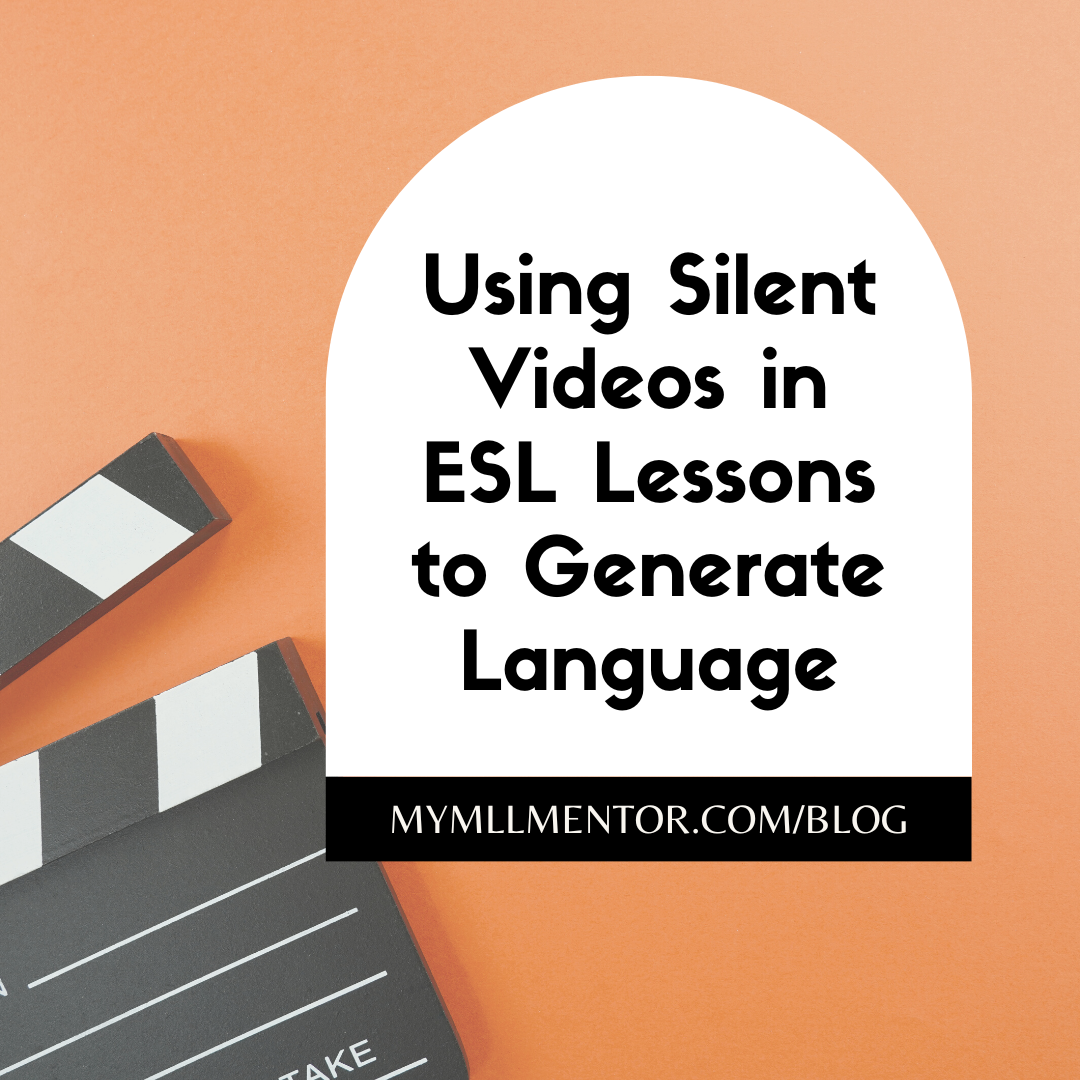
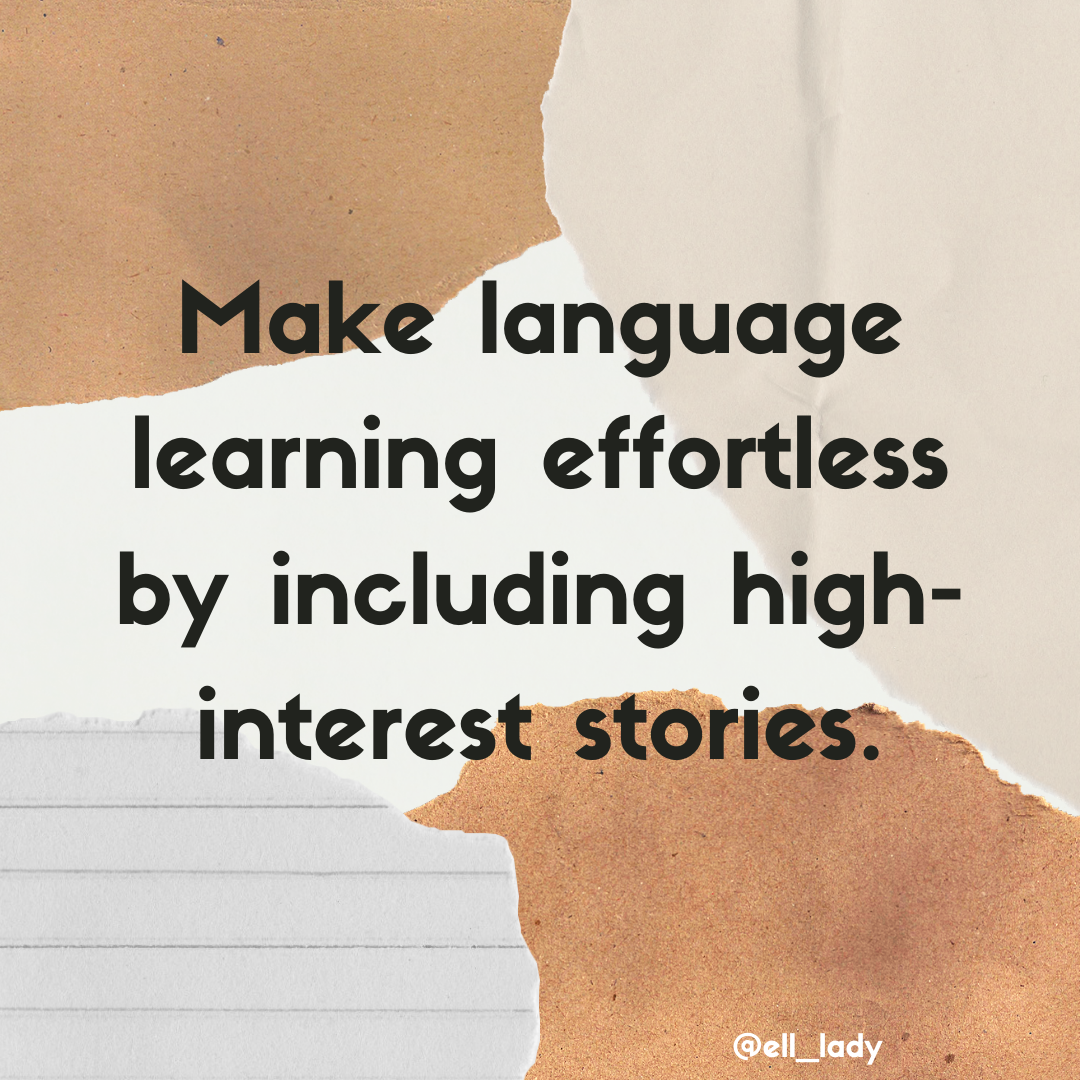
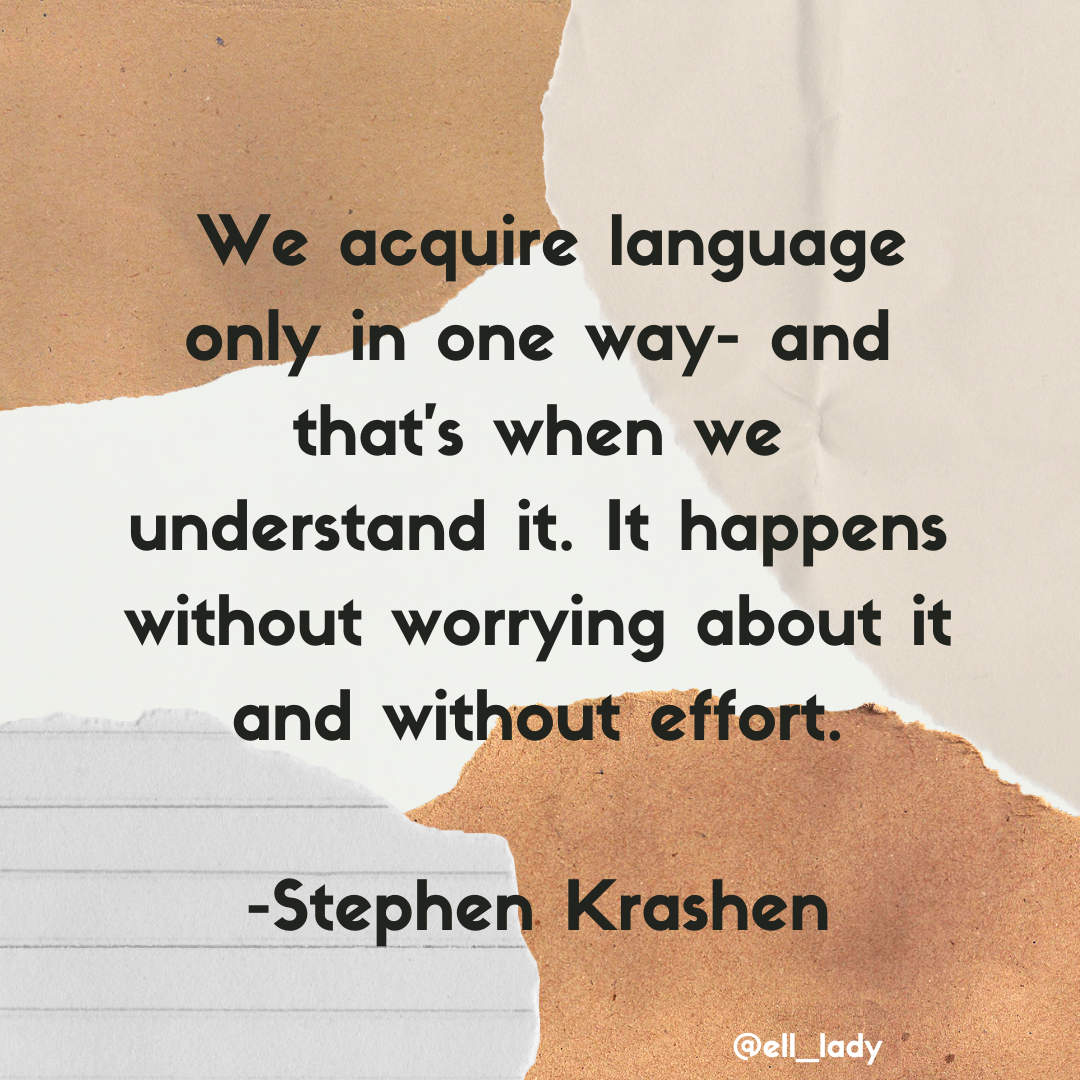
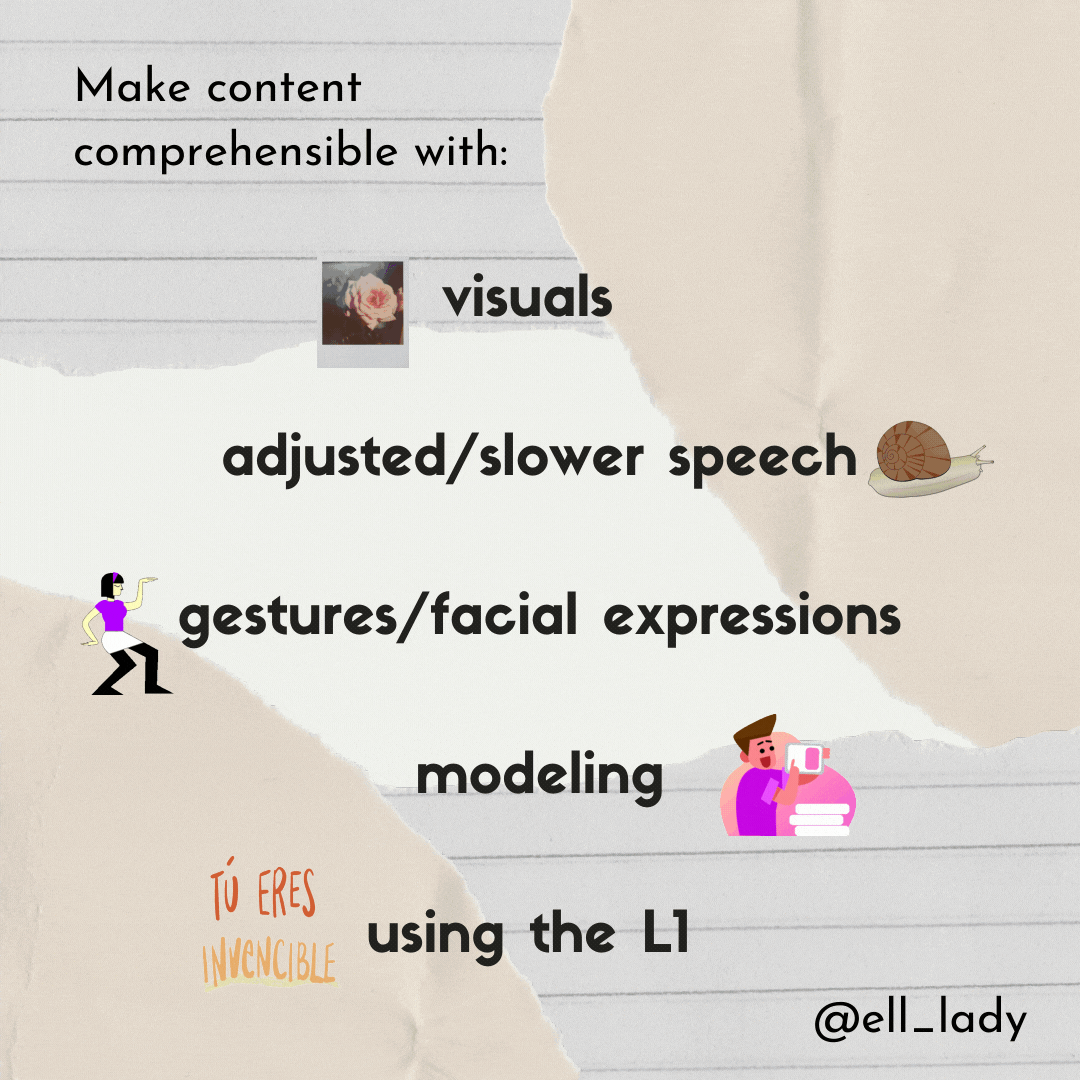
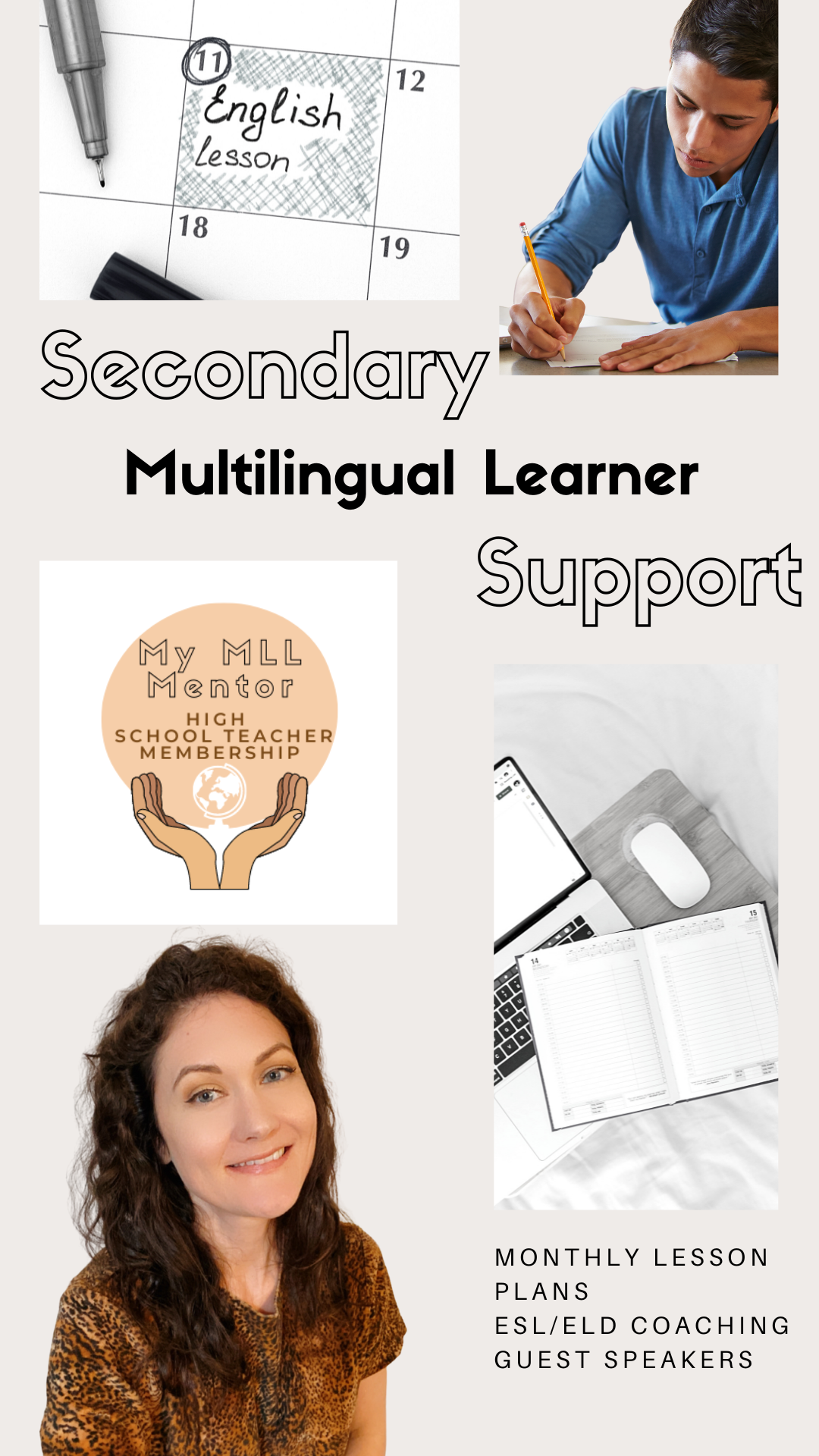
 RSS Feed
RSS Feed
